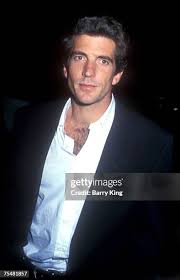
Introduction
John F. Kennedy Jr., the son of the 35th President of the United States, has remained a compelling figure in American history since his tragic death in 1999. As a lawyer, journalist, and founder of the magazine ‘George’, JFK Jr’s contributions to American culture and society were significant. His life was marked by privilege, public service, and an enduring battle against the shadows of legacy and conspiracy theories, making his story particularly relevant today.
The Life and Career of JFK Jr
Born on November 25, 1960, John F. Kennedy Jr. was thrust into the public eye at a young age, famously saluting his father’s casket during his funeral procession. Educated at Harvard University and the New York University School of Law, JFK Jr. cultivated a reputation not only as a member of a prominent political family but as an accomplished individual in his own right. In 1995, he founded ‘George’, a political magazine that aimed to present both sides of the political spectrum. His genuine passion for public service was evident through his work, which included advocating for political reform and assistance for the needy.
The Tragic Death
On July 16, 1999, JFK Jr. perished in a plane crash along with his wife Carolyn Bessette-Kennedy and her sister Lauren. The accident shocked the nation and raised numerous questions regarding aviation safety and the pressures of public life. An investigation by the National Transportation Safety Board (NTSB) determined the probable cause of the crash to be pilot error, as JFK Jr. was flying in challenging conditions and had recently obtained his pilot’s license.
Enduring Conspiracy Theories
Despite the official findings of the NTSB, JFK Jr.’s death has been surrounded by conspiracy theories. Some theorists suggest he faked his death or that he would return to public life in the future. In recent years, such theories surged, especially among certain online groups and political circles, after John F. Kennedy Jr. was speculated to play a role in the resurgence of a particular political movement. These unfounded theories continue to fascinate a segment of the population and reveal the complex interplay between legacy and modern-day myths.
Conclusion
The legacy of JFK Jr. continues to resonate in American culture, serving as a reminder of the challenges faced by public figures, particularly heirs to political dynasties. While discussions about his contributions and untimely death remain relevant, it is crucial for discourse to rely on verified information. As we move forward, understanding the impact of JFK Jr.’s life and examining the myths surrounding it may serve as a case study in the importance of confronting sensationalism with facts, reflecting on both history and its lasting impacts on contemporary society.



